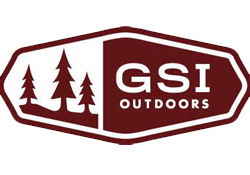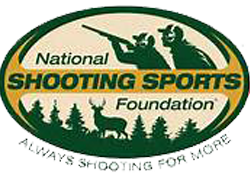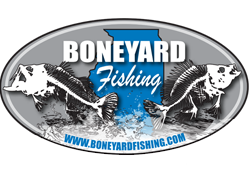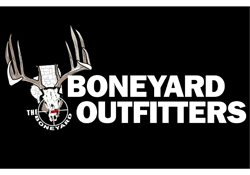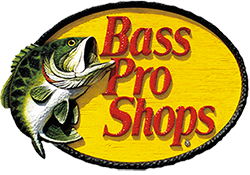Know the Hunting and Fishing Regulations or Pay the Price – Illinois Game Laws
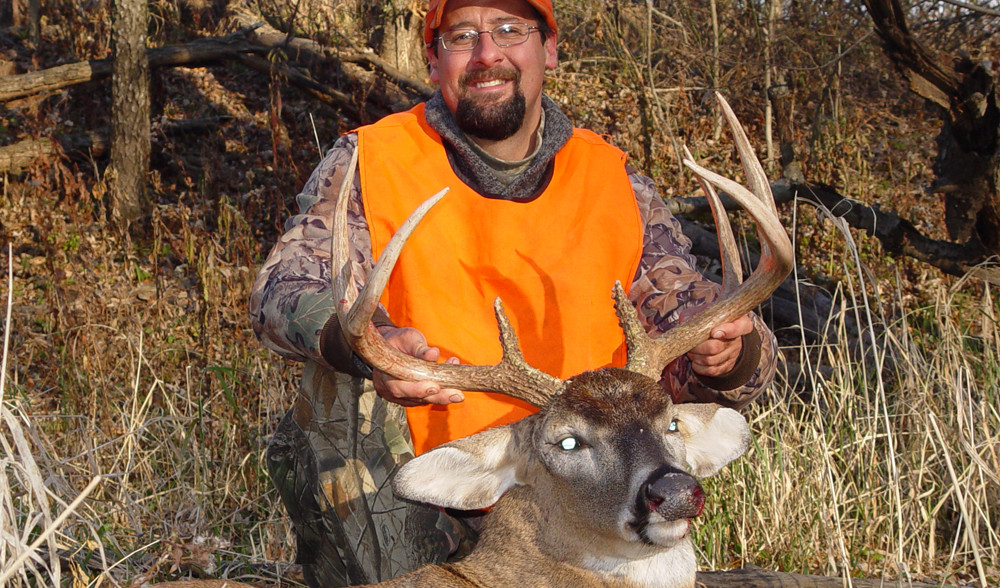
On the opening morning of the 2012 Illinois firearm deer season, two hunters in camp didn’t have any blaze orange. They claimed they didn’t know you needed to wear orange during shotgun season. Fortunately for them, I had a couple extra vests in my gear bag, which saved them from violating the law and probably getting tickets and fines. That’s one of many instances I’ve experienced over the years with uninformed hunters. Yet, I’m continually amazed at the lack of understanding and ignorance that many sportsmen have regarding hunting and fishing regulations. I continue to run across hunters and fishermen that are breaking laws and don’t even know it. By doing so, they are not only putting themselves and others at risk or damaging the ecosystem that the laws are meant to protect, but they are risking their hunting and fishing privileges. Either way, if you’re going to hunt and fish, you need to know the laws.
The simplest and best advice I can give is to know the regulations and understand them before you hit the field or waters. If you break the law, it’s your fault and no one else’s — ignorance is no excuse. Which means just because you don’t know the laws, doesn’t mean you’re not breaking them or you are somehow exempt from them. Conservation Police Officers (CPO’s) are arguably some the most stringent and dedicated law enforcement professionals around. If you’re in violation, most of the time they will give you a ticket, or you could be brought up on other criminal charges depending upon the violation. In addition to court costs and fines, convictions of game laws could count against your record with the Department of Natural Resources (DNR). That’s right — all Illinois sportsmen and women have a record that is based on a point system, and these “points” could lead to serious issues, like losing your hunting and fishing privileges or worse. If you value the opportunity to hunt and fish, then you should know the laws and how they work.
What I originally planned for this article was to communicate the specific penalties and points that each infraction incurs. But after talking with law enforcement personnel, I discovered that there is no simple formula for determining the penalties for violations. Each violation has a class level and charge associated with it, but there is some wiggle room with Conservation Officers. Most of the time common sense or Officer discretion is applied to different scenarios. Many other variables come in to play that may determine the level of charge such as prior offenses, knowledge of wrongdoing, or other unlawful behaviors that are being committed.
Another factor that makes it hard to simplify the “point value” of each infraction is the fact that more often than not, conservation officers can compound the number of infractions and that will determine the final charge, fine and points. For example, if a hunter is breaking multiple laws, then the CPO can add all of those up. Again, officer discretion may apply as to how many charges are “stacked up” on the hunter. So it pays to be respectful and comply with the officer’s requests.
How do you stay out of trouble?
Simple — know and follow the game laws. You can do this by reading the “Bible” of hunting regulations, the Illinois Hunting and Trapping Digest published every year by the Illinois Department of Natural Resources (IDNR). Whether you are new to hunting or a seasoned veteran, you need to read it, I mean from cover to cover. Not knowing the game laws is no excuse — if you are breaking the law and get caught, you are going to be charged. I don’t know many CPO’s that give warnings. Additionally, there are often changes to the regulations from year to year, so it’s the responsibility of sportsmen to know those changes. The IDNR announces these changes on their website as well as highlighting those new or changed regulations in the Hunting and Trapping Digest.
What happens when you break the Law?
As I mentioned, each sportsman or woman in Illinois has a record based on “points”. If any hunter of fisherman is convicted of violations that result in 13 points or more, their license could be suspended for up to 3 years. Again, the violations that cause the points charged and fines may vary depending upon many factors, so your fate could be in the hands of the CPO and the court. It’s possible that multiple violations could be compounded to exceed the 13-point limit, resulting in suspension of license and even more extensive fines. And the point accrual may not be charged and applied at one time. Sportsmen can be charged with points for infractions over several seasons, so violators that accrue 13 points within 3 years are still subject to losing their license. Although there is no specific list of points for every class of violation or combination of violations, for a single incident here is rule of thumb for convictions: Petty offense = 3 points, Class C = 6 points, class B = 9 points, class A = 12 points, but some class A’s are 13 points (resulting in automatic license suspension). More serious or felony infractions could result in more drastic charges. For example, if you are hunting after hours, spotlighting, and using a weapon not authorized for the species, you will more than likely have all your hunting equipment seized and possibly your vehicle.
What are the most common violations?
According the Conservation Officers that I interviewed, these are the top violations for which sportsmen are convicted:
Hunting- 1) Permit violations, 2) License violations (no or expired license), 3) Site specific violations 4) Hunting too close to another/trespassing, and 5) Unlawful use or aid of a vehicle/conveyance (unlawful take from a vehicle or spotlighting).
Fishing-1) Fishing without a license, 2) Snagging, and 3) Over limit or length infraction (fish too small).
The moral of this story, and the best way to enjoy the outdoors is to simply know and comply with the regulations. Not because you are afraid of getting caught, but because it’s the right and ethical thing to do. A successful hunt means so much more when you hunt legally and take game on their own terms. There is absolutely no honor in taking game or fish by harvesting them illegally. So know the laws, abide by them and be an ethical sportsman. In doing so, you will enjoy your time outdoors and become a role model for the next generation.
Here are a few common regulations that you should know before hitting the field:
Regarding deer hunting…
• It is illegal to shoot a deer and put some else’s tag on it. If you shoot it, you need to tag it with YOUR permit. If you do not have a deer permit, you are not supposed to be hunting.
• Deer permits are NOT transferrable. You can’t “give” your permit to another hunter so they can hunt and/or shoot a deer. It’s also illegal to shoot deer for other people to tag. Best practice is to shoot your own deer and use your own tag, that’s the law.
• It is ILLEGAL to move your deer before tagging it. You need to put the permit on your deer as soon as you find it.
• Another one that many deer hunters overlook is signature on the permit. You need to sign your deer permit BEFORE you enter the field to hunt, not after you shoot the deer.
• If you harvest a deer, you must report your kill to the DNR before 10:00 pm the same day you kill it. It takes 5 minutes, either online at the DNR website or by calling the phone number on your permit. You are in violation if you do not call and report your deer. After you report the deer you will receive a confirmation number. Hang onto it. In fact, there is a place on your leg tag of your deer to record that number.
• It is illegal to carry a handgun while bowhunting, even if you have a concealed carry permit.
• All hunters that hunt deer during the firearm season are required to wear blaze orange regardless if you are hunting on public or private land. 400 cubic inches must be worn on your upper body as well as a blaze orange hat. And yes, you have to have a hat.
• It’s illegal to harvest more than 2 antlered deer for all seasons combined. The ONLY exception is for the late season in counties with a CWD season. If you have an either sex CWD tag you can take another antlered deer.
These are just a few of the major ones, there are too many regulations to list them all here. My advice is if you plan to hunt, know the regulations by reading the Hunting and Trapping Digest. Have a successful and safe hunting season!






